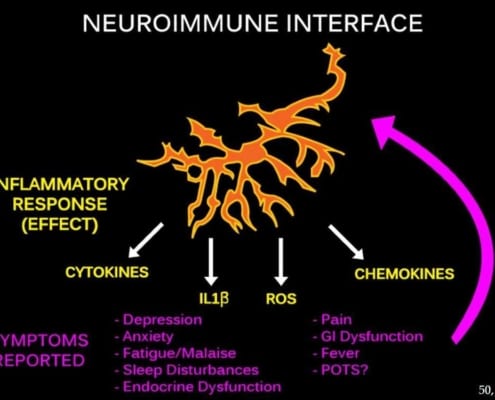The number of Americans affected by serious depression and anxiety disorders is enormous. The National Institute of Mental Health reported that in 2019 approximately 7% of American adults suffered from at least one major depressive episode and nearly 20% of adults suffered from an episode of anxiety [1]. Unfortunately, these numbers will increase with the global COVID-19 pandemic adding heavy emotional and physical stressors on individuals here and across the globe [2].
Adolescents are also increasingly suffering. Teen depression and/or anxiety may not look exactly the same as it does in adults, but the consequences are equally dire if left untreated.
The impact of mental illness goes well beyond the enormous economic burden on society. Individuals who suffer from depression and anxiety disorders may withdraw and isolate themselves from friends and family, they may struggle with sleep disturbances, experience mood swings and feelings of low self-worth, a loss of productivity and wages, and physical pain.
Despite tremendous advances in health care, as many as 30% of patients do not respond to treatment, raising the question: could it be that we’re thinking about — and therefore treating — these conditions in the wrong way?
Mental Illness as a Symptom, Not a Condition
At The Kaplan Center, we look at depression and anxiety a little bit differently. Scientific research over the last 15+ years has demonstrated that neuropsychiatric conditions such as depression, anxiety disorders, and possibly bipolar disease are, in a very high percentage of cases, the result of inflammation occurring in the brain.
What causes brain inflammation?
Brain inflammation, or neuro-inflammation, is unique in that it is mediated by tiny cells called microglia. Microglia are the innate immune system of the central nervous system. Their job is to respond to trauma and damage to the brain. In response to brain injury, the microglia release a virtual symphony of chemical mediators that orchestrate the destruction of bacterial invaders, the elimination of damaged neuronal tissue, and the initiation of the repair process.
Ongoing and cumulative assaults to the brain (e.g., fever, physical assault, and emotional trauma) will cause the microglia to remain chronically up-regulated, causing them to continuously spew out inflammatory, tissue-destroying chemicals rather than returning to a resting state.
This brain inflammation produces a wide range of symptoms including depression, anxiety, chronic pain, difficulty focusing and concentrating, fatigue, and sleep disturbances.
Integrative Medicine = a Better Model of Care
By thinking about depression and anxiety as symptoms of an inflammatory process, we’re afforded new insights into potential root causes, as well as alternative methods of treatment. Extinguishing the inflammatory response is the first step in finding a path to recovery.
For example, could undiagnosed mold exposure, thyroid disease, or Lyme disease – all of which cause brain inflammation – be the root cause of your symptoms or the reasons why your symptoms are worsening?
Integrative medicine utilizes both conventional and alternative treatments (including, for example, acupuncture, herbal remedies, and meditation) to treat a patient and support the healing process. Integrative medicine doctors also incorporate the importance of nutrition, exercise, and other lifestyle support.
We offer a wide range of conventional and alternative treatment options to treat anxiety and depression, tailored to each individual, including:
Our Integrative Medicine Providers
At The Kaplan Center, you will find a highly dedicated and skilled team of medical professionals working towards one common goal: returning you to optimal health and keeping you there. In addition to our board-certified physicians, our medical team includes licensed physical therapists, a psychotherapist, a nutritionist, an acupuncturist, a meditation instructor, and two registered nurses.
Take the Next Step and Speak with a Nurse
The best way to reach us is to give us a call. If you’d like to learn more about the conditions we treat, click here.
We are here for you, and we want to help.
Our goal is to return you to optimal health as soon as possible. To schedule an appointment please call: 703-532-4892 x2




